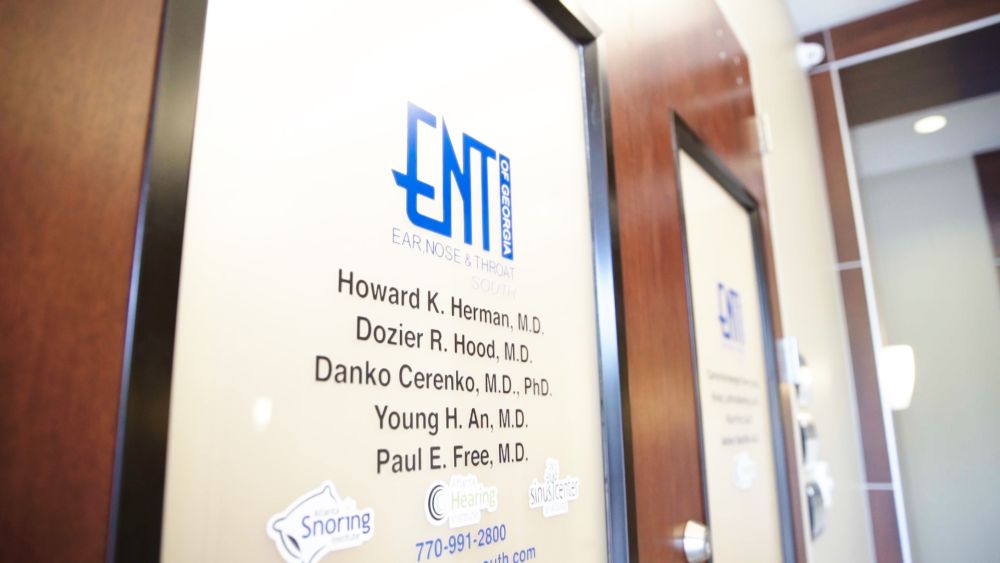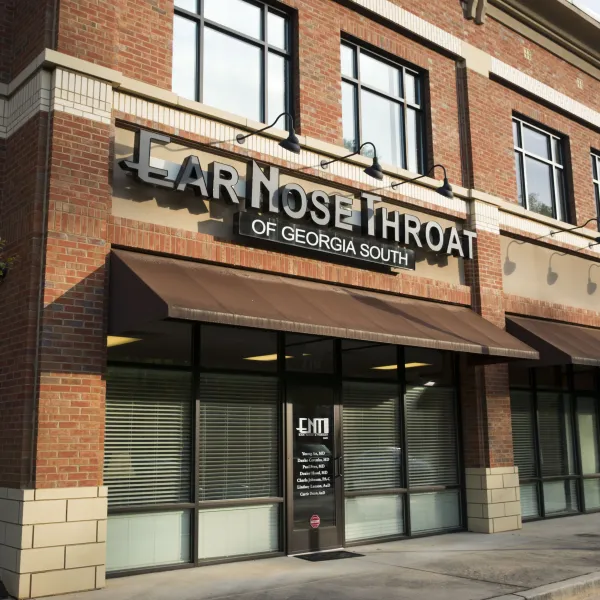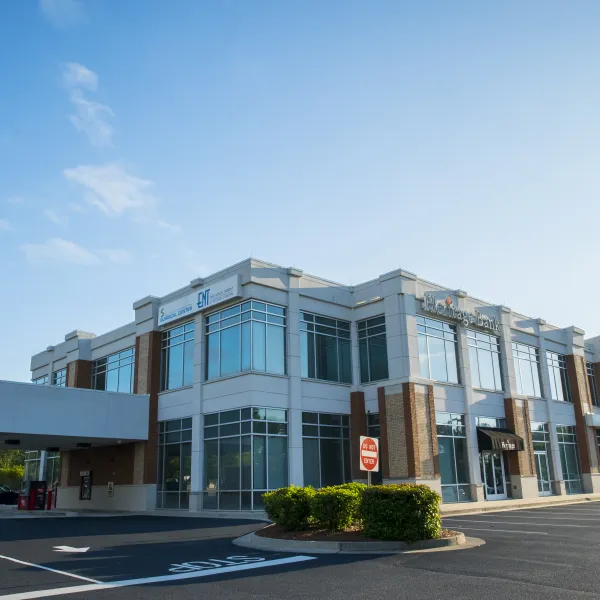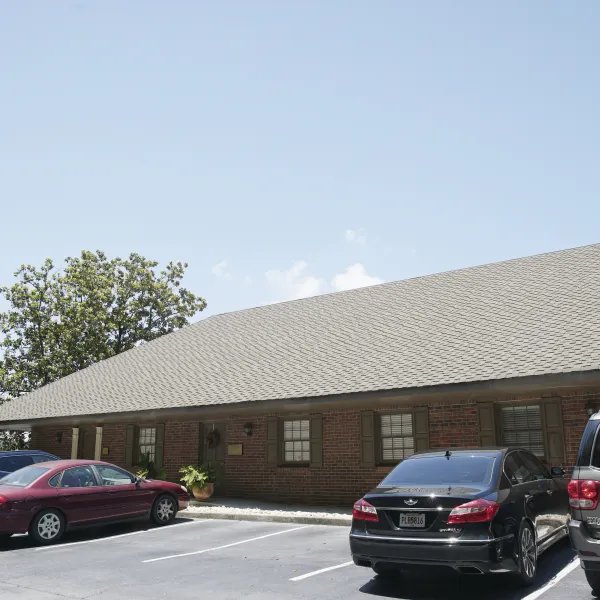
Tonsil & Adenoid Surgery

Surgery
Tonsil & Adenoid
Tonsils and adenoids are part of the body’s immune system sampling bacteria and viruses that enter through the mouth or nose. But many times, they get infected and become more of a liability than an asset and may even cause airway obstruction or repeated bacterial infections. Your otolaryngologist may determine that the removal of the tonsils and adenoids may be the best medical option. The team of five otolaryngologists at ENT of Georgia South has extensive experience in performing safe and effective surgery to remove tonsils and adenoids. The procedure will, in most cases, reduce the incidence of chronic infections and lead to a better night’s sleep.
Tonsils
The throat, through which air and food pass, contains lymphatic tissue. This tissue acts as a defense against bacteria. It consists of an upper mass at the back of the nasal cavity - the adenoids - together with the lower masses on either side of the back of the mouth -the tonsils - in addition to generalized lymphatic tissue around the throat. The tonsils and adenoids, in particular, are susceptible to infection and enlargement.
Symptoms include sore throat, difficulty in swallowing and breathing, fever, rapid pulse, and headache. Inflammation of the tonsils - tonsillitis - is rare in infants but occurs commonly in children aged six months to three years, and occurs occasionally in adults.
Bacterial tonsillitis is treated with antibiotics, and when indicated, surgical removal is necessary. If tonsillitis occurs frequently or is persistent, removal is indicated. Enlarged tonsils creating eating and breathing problems are also an indication for surgical removal. When the tonsils and adenoids are removed, the additional lymphatic tissue assumes the defense function. Complications from infected tonsils that have not been removed may involve the ear, sinuses, lungs, kidneys, and the heart.
Prior to
Surgery
After a complete ENT examination in the office, if surgery is indicated, an operating date will be scheduled. Infection must be controlled prior to surgery.
The tonsillectomy is done usually as an outpatient surgery. To best prepare the child for surgery, an explanation by the parents regarding tonsils, general anesthesia, and perhaps a prior visit to the hospital will help to reassure the youngster. The child’s favorite toy or teddy bear is always a welcome comfort. Recovery usually takes 10 to 14 days

Post-Operative
Care
Within the hospital, after the operation, the child will be observed carefully and watched for vomiting and bleeding. The child will be given fluids and encouraged to drink. Chipped ice will be soothing.
When the child returns home, he may be out of bed and dressed but rest periods are encouraged. It is normal to have a sore throat and pain in the ears for 7-10 days after the operation. Pain and stiffness of the neck, a foul breath odor, and unusual nasal speech are common and will shortly disappear. Soft foods and fluids are important. Jello, soft-boiled eggs, custards, mashed potatoes, and ice cream are popular choices. Gatorade is appropriate, and popsicles are a pleasant substitute. Spicy foods and carbonated beverages should be avoided. A regular diet should be encouraged as soon as the child is able to swallow.
Since the patient should not be exposed to infections, it is wise to limit the number of visitors, especially anyone with a child.
If post-operative bleeding occurs, the child should be kept quiet, in a sitting position, and given ice chips to swallow. If bright red bleeding continues for longer than 10 minutes or temperature exceeds 102 degrees Fahrenheit, orally, please contact the office.
Our Convenient
Office Locations



Buckhead
1218 W Paces Ferry Rd NW
UNIT 208
Atlanta, GA 30327
Monday - Thursday 8am - 4:30pm
Friday - 8am-2:30pm






